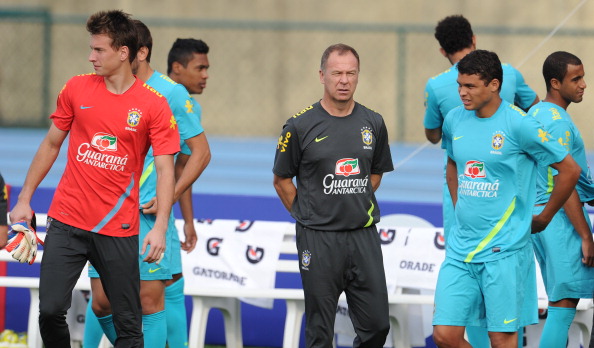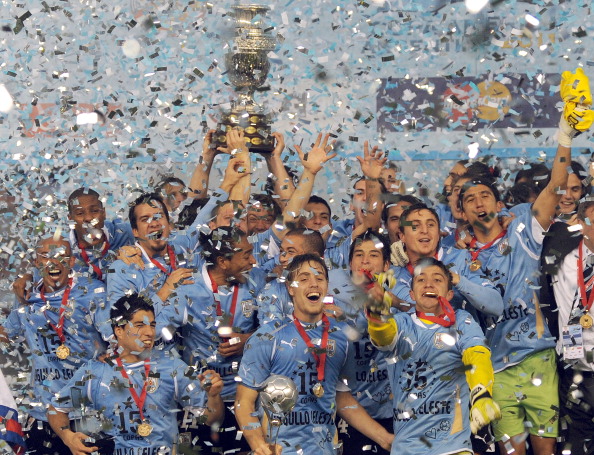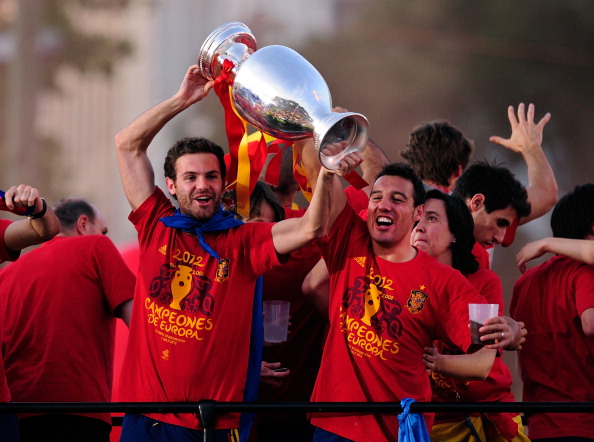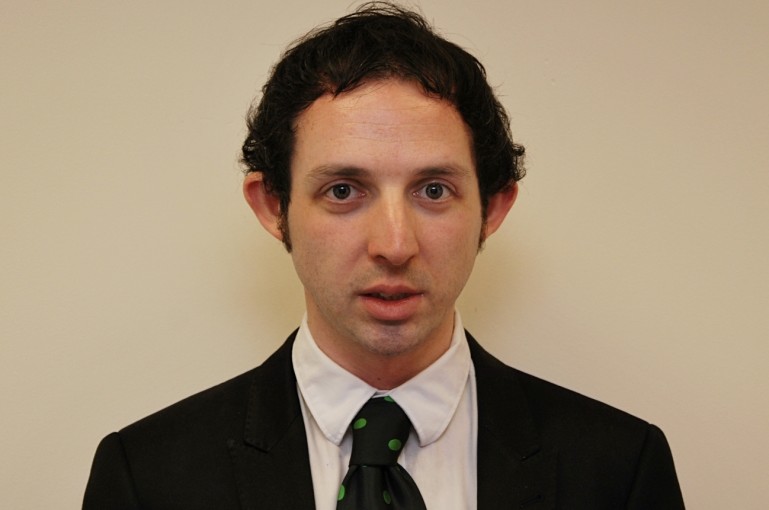The Olympic men’s football tournament gets underway today, and although 16 teams start with hopes of success there are three countries that stand head and shoulders above the rest.
Brazil, Spain and Uruguay could well be the teams taking away gold, silver and bronze this summer, although in which order is harder to predict. But it is difficult to see beyond them when it comes to anticipating the next two weeks.
For Brazil, this summer is a superb chance to put to bed years of hurt at the quadrennial event, with coach Mano Menezes (pictured below, centre) desperate for gold to hold onto his job.
With the World Cup being hosted by Brazil in two years’ time, this is a nation determined to leave nothing to chance in pursuit of the World Cup on home soil. The country has been scarred ever since losing the 1950 World Cup in Brazil, and 2014 is the only chance it will have, presumably, for decades, to finally banish the memory of that defeat.
Therefore, lingering doubts over Menezes (pictured below, in grey) could lead to his departure if he cannot guide the team to gold at Wembley. With 2002 World Cup-winning coach Luiz Felipe Scolari, currently the Palmeiras coach, looming in the background should Brazil opt for a change, the pressure is really on. Particularly given Palmeiras’ recent triumph in the Copa do Brasil and not least the generous talent at his disposal, be it Neymar, Ganso, Hulk, Romelu, Damião or Oscar.

Although they are everyone’s favourites, Olympic football fans and commentators alike would do well to remember Atlanta 1996. Then Brazil, reigning world champions and with an equally gifted generation and a squad including Bebeto, Ronaldo, Rivaldo and Roberto Carlos, floundered and crashed out at the semi-final stage to Nigeria.
The team has changed dramatically compared to that which laboured through the Copa America last year, where they drew with Venezuela and Paraguay in the group stage, defeated Ecuador but then lost in the last eight against Paraguay again – part through design, part through the rules stipulating only three players over the age of 23 can play in Olympic football.
They will have a stern task on their hands if they are to finally win the Olympic event. Take Uruguay for a start. They may not have the same level of individual talent on show, but they are not that far off either. Luis Suarez and Edinson Cavani, aside from being a skilful, potent and world class strikeforce, are also exceptionally hard working. Then there are the creators of this team, particularly Gaston Ramirez and Abel Hernandez. International football, being slower than the club game, should particularly suit Bologna midfielder Ramirez, whose ability to carve open opposition defences could prove a nightmare for Uruguay’s opponents this summer.
They have a manager in Oscar Washington Tabarez who is fundamentally pragmatic, but not that defensively minded either. At last year’s Copa America, he guided his team to victory (pictured below) with an impressive display of tactical nous. They defeated hosts Argentina with 10 men as Tabarez decided to play with three central midfielders and two centre-forwards. This effectively meant they did not suffer as a result of the man disadvantage as the player who was not being marked was Lionel Messi. On the face of it illogical, but in practice a stroke of genius from Tabarez. Messi, playing on the right, kept trying to cut into the centre, where the space was blocked by Uruguay’s tough, deep and narrow midfield, thus negating any potential influence he could have.

Tabarez’s teams are a blend of toughness, resilience and flair going forward. They are a side who, like Napoli in the club game, get away with playing slightly defensively with just three forwards because those forwards are so hard working as well as fast, that they can counter attack ruthlessly. This intelligent tactical system makes Uruguay a serious threat, and strong favourites to win a tough group which also includes Senegal and Britain. Uruguay have only won two gold medals at the Olympics before, both in the football in the 1920s. If they win a third gold, it could well be at Wembley.
Then there is Spain. Champions of the world, Europe and most youth titles too, Olympic gold would entrench their status as the world’s top team. With a trio of Euro 2012 winners from this summer in Jordi Alba, Javi Martinez and Juan Mata (pictured below with Euro 2012 trophy), Spain are taking this tournament more seriously than many of their rivals. Where Japan cannot call upon new Manchester United signing Shinji Kagawa, Britain are without any of their Euro 2012 stars and Senegal lack their fearsome forward line of Demba Ba, Papiss Cisse and Moussa Sow, Spain have rounded up the best talent available from the likes of Chelsea and Barcelona. They also have a player in Iker Muniain who is the potential heir to Andrés Iniesta for the national team. The prodigiously talented Athletic Bilbao midfielder has sublime close control and creativity, and could be the star of the tournament.

What of the others? The United Arab Emirates and New Zealand rank among the game’s minnows. Egypt are in disarray following the Port Said disaster earlier this year. The rest of the African contingent of Gabon, Morocco and Senegal look threatening and decent bets for the last eight, but all lack their biggest stars. The same can be said of South Korea without Ji Sung-Park, the Swiss, who do not have Granit Xhaka or Xherdan Shaqiri, and Mexico, deprived of Javier Hernandez, Erick Torres and Andres Guardado. Then there is Belarus and Honduras. Respect is due to both, who qualified at the expense of more illustrious regional rivals, but neither have the quality to challenge for medals.
Finally, the hosts Britain, who have thrown together a team who have never played together before. They have talent, not least in central midfield with Joe Allen, Aaron Ramsey and Tom Cleverley, but are taking on teams with more ability and quality who have been playing together for longer. They are also taking on Uruguay, Brazil and Spain who are proven winners.
Between them, the trio hold almost every major world and continental titles in which they compete, not just at senior level but in youth football too. Brazil are world under-20 champions, Spain have the under-19 and 21 European crowns. The only world youth title none of the three hold is for the under-17s, which Mexico won last year on home soil by beating Uruguay.
Olympic football does not always get the respect it deserves in Europe. This summer’s competition is worthy of the attention of any serious football fan, as the battle between Brazil, Uruguay and Spain is sure to provide a vital clue as to the respective fortunes of three of the favourites for the next World Cup in two years’ time.
David Gold is a reporter for insideworldfootball. To follow him on Twitter click here.

